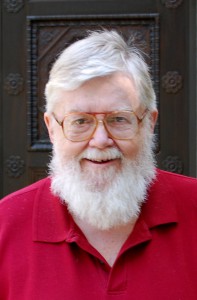 Lately, I have been reading Tom Webster’s Godly Clergy in Early Stuart England: The Caroline Puritan Movement, c.1620-1643. Much of this volume is built around Thomas Hooker’s time in Chelmsford, Essex, in the late 1620s. One of my goals is to document in detail and with precision these years in Hooker’s life, a period in which he was lecturer at Chelmsford, school teacher at Great Baddow, and a leading influence on the development of young ministers of Puritan inclinations in East Anglia.
Lately, I have been reading Tom Webster’s Godly Clergy in Early Stuart England: The Caroline Puritan Movement, c.1620-1643. Much of this volume is built around Thomas Hooker’s time in Chelmsford, Essex, in the late 1620s. One of my goals is to document in detail and with precision these years in Hooker’s life, a period in which he was lecturer at Chelmsford, school teacher at Great Baddow, and a leading influence on the development of young ministers of Puritan inclinations in East Anglia.
Much has been written about Hooker at this stage of his life, some of it from Cotton Mather’s Magnalia Christi Americana, not the most reliable of sources. Modern historians make repeated reference to the “household seminary” run by Hooker, and I am concerned that this aspect of Hooker’s career has been distorted by the way Mather presented his information. A fair portion of my research trip to England in the fall will be devoted to collecting copies of all the original sources for Hooker’s life in Essex, and reading Webster’s book is part of the preparation for that research.
I have also gone back and reread the early sections of Jeremy Bangs’s Strangers and Pilgrims, Travellers and Sojourners, in order to get clear in my head the chronology of the founding of the Scrooby (Nottinghamshire) church and the events that led to members of the congregation departing for Leiden in Holland. Aside from its intrinsic importance, I wanted to be sure I understood the participation in that process of such ministers as Richard Bernard and Arthur Hildersham, two men who are important in other parts of the Great Migration story. Especially in connection with this strand of the research, I have made significant additions to my Personae file, the list of all those individuals who wind in and out of the Great Migration story.
I have a good collection of the historical literature on English Puritanism published up until the early 1990s, but after that time I have collected very little in this area, so I am aware that my knowledge of what historians have been up to for the last twenty years has some serious holes in it. Based partly on suggestions from Frank Bremer, I have acquired two important recent volumes: Michael P. Winship’s Godly Republicanism: Puritans, Pilgrims, and A City on a Hill, and Patrick Collinson’s Richard Bancroft and Elizabethan Anti-Puritanism, both of which I have begun reading. The footnotes and bibliographies in these two volumes will go a long way toward bringing me up to date with the historical literature.
Robert,
Would you recommend an introductory book or article on religion in 17th Century Colonial America. I am especially interested in learning about religious persecution by the Puritans.
Thank you,
Linda Chance
interesting period as I have ancestors where were Puritans, Separatists and Quakers who settled in the MA Bay Colony between 1620 and 1630
I have traced our Page side of the family back to immigrant John Page who came with his wife and a child to Boston in the Winthrop Fleet, the JEWEL in 1630. He settled in Watertown. I am wondering if all the Fleet came via Holland. Is there any record of the Puritans during their Holland stopover…how long did they stay, did they influence the area…etc. Are there any records of which people came from the above mentioned Scooby Church? Is there a basic list of books one should start with on this subject?d Thank you for your work.
Please post daily on your trip-with many photos-for those of us unable to be there! My Thomas Sherwood came on the Francis of Ipswich 1634, controversy over his origins- Bocking, Essex, being one possibility. Part of the group you are studying, I hope. Thank you for your work on our history. Susan Sherwood
Forgot to add another possibility is the village of Kettlebaston, in Surrey. They went originally to Boston, then @1639 to Fairfield, Conn. Any kin out there? Write me!
In doing my genealogy, I came across the name William Smead. This is attached to my ancestress Judith Stoughton Denham Smead. There is a lot written about the Stoughtons but Judith, the youngest, is usually forgotten in the mix. William Smead, Sr. would have been her second husband and their son, William, Jr., and descendants wound up in Deerfield. The records on line say William, Sr., was born in England but I have yet to find any paperwork to that effect or any persons with the name Smead who might have been his family. So, given the unusual spelling of the name, I have come to realize the possibility that he wasn’t actually English. Smead, is a Dutch name, as a matter of fact. My question is whether there are any sources to find Dutch immigrants to England who would have joined the migrant movement and the Winthrop Fleet passengers. Has anyone an idea or contacts where I could start to search for him in Dutch records?
I have never heard that Smead was a Dutch name. Where did you get that information? Also, how do you relate to Judith Smead? She is in my line too. Smede seemed to be a Dutch name, anyway there were a lot of them connected to early Dutch communities in New York, if I recall properly.